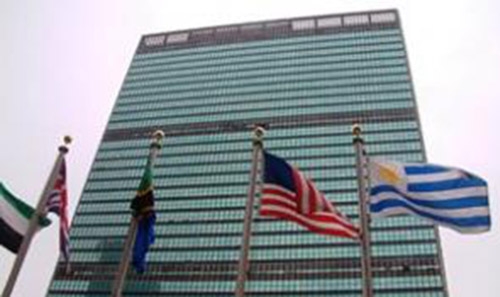World's nations urged to look beyond war on drugs
United Nations: World governments gathered at the United Nations were urged on Tuesday to move away from repression in tackling the drug problem, end the use of the death penalty for drug offenses and step up treatment.
The UN General Assembly opened the first meeting on the global drug problem since 1998 to adopt a document that marks a shift away from the "war on drugs" with its heavy-handed approach centered on law enforcement.
"Drug policies that focus almost exclusively on the use of the criminal justice system need to be broadened. They need to be broadened by embracing a public health approach," said World Health Organization director Margaret Chan, drawing applause.
Delegates from the European Union, Switzerland, Brazil, Costa Rica, Uruguay among others called for abolishing capital punishment for drug criminals, a practice used by China, Iran and Indonesia.
Indonesia's delegate drew jeers from the assembly when he argued that the use of the death penalty was a matter for individual states to decide, in a statement backed by Singapore, Saudi Arabia, China, Iran, Pakistan among other countries.
The document agreed to during meetings in Vienna last month makes no reference to the death penalty but calls on government to "promote proportionate national sentencing policies... whereby the severity of penalties is proportionate to the gravity of offenses."
It calls for "appropriate medication-assisted therapy programs, injecting equipment programs as well as antiretroviral therapy and other relevant interventions."
- Hong Kong success -
Some 27 million people worldwide are living with drug use disorders, and more than 400,000 of them die each year, according to the WHO.
Drug use by injection accounts for 30 percent of new HIV infections outside of Africa and contributes to epidemics of hepatitis B and C in all regions.
WHO's Chan singled out Hong Kong as a success story, where methadone treatment for drug users was key to reducing petty crime.
"People with drug dependence can be helped and returned to productive use in society," she said.
The three-day special session was requested by Colombia, Mexico and Guatemala, which have felt the brunt of the war on drugs with an explosion of crime and violence.
Ethan Nadelmann, who heads the Drug Policy Alliance which is pushing for reform, said the UN text was a "notable improvement" but still "quite limited and disappointing."
"Those in favor of maintaining the status quo, notably the Russians and their allies, won the bigger battles in the negotiations leading up to this week's meeting," he said.
In the lead-up to the meeting, the former presidents of Mexico, Colombia and Nigeria joined celebrities Sting and Michael Douglas along with businessman Warren Buffett to call for an end to the "disastrous" war on drugs of recent decades.
Related Posts

